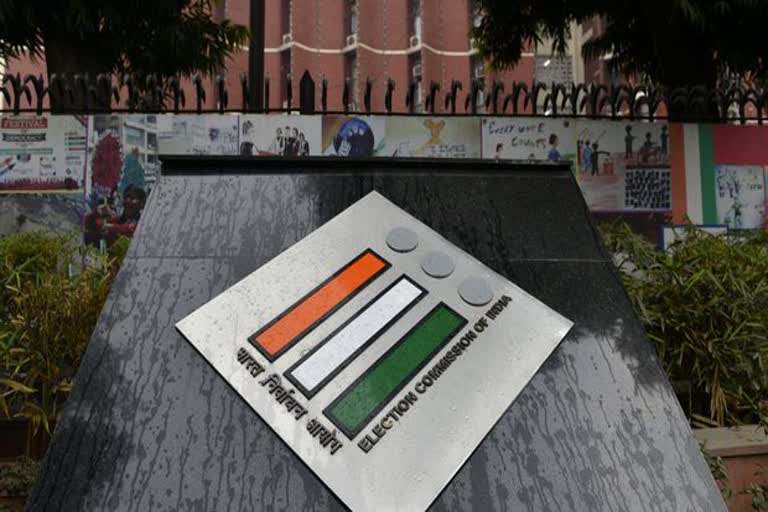Hyderabad: After Government of India announced Electoral Bonds (EBs) in the budget 2017-18, the then RBI governor Urjit Patel in a letter dated 14 September 2017- raised 3 issues:
In order to hide their identity, real companies can (mis)use the non-existent, shell companies to buy EBs and make donation to political parties. This can facilitate money laundering by giving legal space to shell-companies in money transactions.
The anonymity of the donators can be better achieved if the EBs are issued in Demat (dematerialised or electronic) form; instead of a provisional certificate of money. The Demat form will give the bond-holders a unique number which he can share with the political party.
When the EBs are in Demat form, RBI will have the record of the payer of money. The record of the money receiving political party is known to the Election Commission. This Demat form will pave the way for fully transparent electoral funding.
Section 31 of RBI Act empowers only RBI as the apex bank to issue Bonds. If Section 31 of the RBI Act is amended and SBI is allowed to issue the EBs, the monopoly power of the central bank will be diluted.
In response, finance ministry (through the then Economic Affairs Secretary Subhash Chandra Garg ) on 5 October 2017 replied “If EBs are issued in Demat format, it may fail the real purpose of hiding the identity of the donor. So, such bonds would be issued only in provisional certificate form.”
The then RBI governor Urjit Patel on 11 October 2017, argued: “If the government decides to issue EB in form of a provisional certificate of money, RBI (& not SBI) should issue the EBs.”
But the government argued that RBI does not fall in the category of a scheduled bank (where people can conveniently transact). Subsequently, it amended Section 31 of the RBI Act through Finance Bill-2017 and notified the EB scheme to be implemented fully by SBI.
Interestingly, such as government’s eagerness to get the SBI on board with the scheme that it readily accepted SBI’s all demands including the one that the bonds attract a stamp duty (thereby giving immediate revenue directly to SBI).
It therefore seems that RBI was never fully convinced as Centre hard-pushed for the EBs.
There are other instances when finance ministry's action regarding EBs appear suspect. While notifying EBs on 2 January 2018, the government of India specified for 10-day windows in each year when SBI would sell these bonds to the donators: January, April, July and October.
Read more:FASTag must from December 1; Know it thoroughly
But finance ministry on 2 separate occasions allowed the unscheduled sale of EBs. It cannot be just coincidence that both occasions were just ahead of assembly elections.
Ahead of the Karnataka elections in May 2018, a special extra 10-day window was opened. Congress alleges that the funds from EBs were used to get opposition parties’ MLAs to defect in the aftermath of the assembly elections that year.
Another special window was opened in November 2018 i.e. ahead of assembly elections in Telangana, MP, Mizoram, Rajasthan and Chhattisgarh.
“Government of India has a direct control over SBI which issues EBs. The government can always access the financial transactions in EBs through SBI. In other words, the ruling party can always track the company which donated the EBs to the opposition parties. Out of fear of getting tracked by the ruling parties, several donators have been shying away from donating to anti-BJP parties.
EBs thus have become a legal way for whitening the illegal money,” says Congress leader Manish Tiwari while demanding a JPC probe in the matter.
BJP however dismisses the allegation, saying: “Anonymity does not mean that anyone - without disclosing his name or identity - can drive in a truck load of cash into a bank; and buy the bearer bonds. Anonymity is accorded only to the extent that the donors’ organisations do not have to disclose to everyone which parties receive their political donations.”
As per BJP, EBs provide anonymity, but not immunity from breaking any law. A donor must approach SBI branches and pay for their purchase. A political party has to deposit these into its bank account and obtain the formal cash.”
Defending EBs, Union Commerce Minister Piyush Goyal says: “Earlier, there was a system to give a cash donation to political parties. Now, election bonds are connected with bank accounts. All accounts are attached to KYC norms. The system is completely transparent. If EBs had not come into place, large unaccounted cash would have continued to pour into political parties. Though EBs have not made dishonest Indians honest in one stroke; it surely is making made dishonesty a far tougher business to be in.”
Dismissing the allegation that RBI was not fully taken on board, Goyal says that the Government of India was in constant discussion with the RBI. “The apex bank had enough time to consider the issue given that the government took them almost a year to notify the scheme after the introduction of Finance Bill 2017.”
The minister & other BJP leaders however evade question as to why government broke the laws on 2 separate occasions and allowed the unscheduled sale of EBs in the run-up to assembly elections.
(Rajeev Rajan, Special Correspondent, Eenadu)
